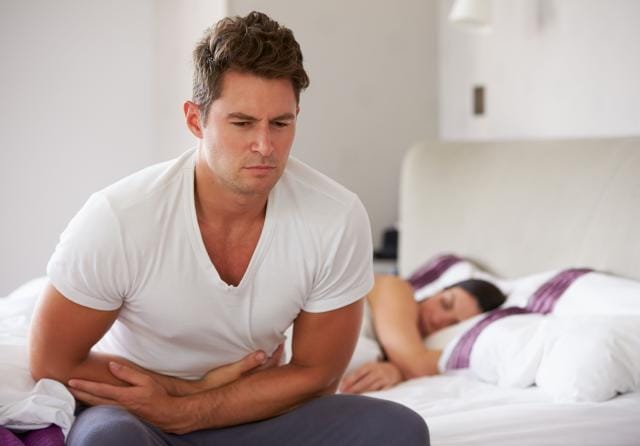Understanding the Impact of POIS on Everyday Life
Explore the Realities of Living with POIS
Discover how Post-Orgasmic Illness Syndrome (POIS) affects individuals daily, with insights into managing and understanding this complex condition.
Introduction
Living with Post-Orgasmic Illness Syndrome (POIS) is more than just dealing with the occasional discomfort. For many, it disrupts not only their physical well-being but also their emotional and social lives. POIS is a rare condition that occurs after ejaculation and results in debilitating flu-like symptoms, including severe fatigue, muscle aches, and cognitive difficulties that can last from days to over a week. This condition can significantly impact the ability to work, maintain relationships, and enjoy everyday activities.
For those affected, understanding and managing POIS becomes a lifelong journey. In this posts, we’ll take a closer look at how POIS affects daily life by sharing the stories of individuals living with the condition, examining the most common symptoms, and exploring strategies that can help improve the quality of life for those affected.
Common Questions About POIS
Gain clarity on frequently asked questions about Post-Orgasmic Illness Syndrome to better understand this condition.
What is POIS?
POIS, or Post-Orgasmic Illness Syndrome, is a rare condition characterized by a range of flu-like symptoms following ejaculation, affecting both physical and cognitive functions.
How is POIS diagnosed?
Diagnosis of POIS typically involves ruling out other conditions and may require a detailed medical history and symptom tracking, as there is no specific test for POIS.
What are the common symptoms of POIS?
Common symptoms include fatigue, muscle pain, cognitive difficulties, and flu-like symptoms, which can last for days after orgasm.
Are there treatments available for POIS?
Treatment options are limited and often involve managing symptoms through lifestyle changes, medication, and therapy, tailored to individual needs.
“Living with POIS has been a journey of discovery and resilience. The support from this community has been invaluable in managing my symptoms and finding a new normal.”
Alex Johnson
Software Engineer
“Before finding this community, I felt isolated and misunderstood. Now, I have a network of people who truly understand the challenges of POIS, and it has made all the difference.”
Maria Gonzalez
Graphic Designer
“The resources and shared experiences here have empowered me to take control of my health. I no longer feel alone in this journey.”
David Lee
Teacher
“This platform has been a lifeline. The stories and advice shared by others have helped me cope with the daily impact of POIS.”
Emma Brown
Freelance Writer
Coping Strategies:
While there is currently no cure for POIS, there are various coping strategies and lifestyle adjustments that individuals can make to manage their symptoms more effectively:
- Rest and Recovery
Since fatigue is a major symptom, ensuring ample rest after an episode is critical. Many individuals plan light or no activities for several days following an episode. - Nutritional Support
Eating a balanced diet, rich in anti-inflammatory foods, can help minimize symptoms. Some people find relief through specific supplements, though this can vary based on individual needs. - Hydration:
Staying hydrated is important, especially for those who experience headaches or other flu-like symptoms. - Mindfulness and Relaxation Techniques
Practices such as meditation, breathing exercises, and gentle yoga can help manage the stress and anxiety that come with POIS. - Medical Support
Consulting with a doctor or specialist about possible treatment options, such as antihistamines, anti-inflammatory medications, or hormonal treatments, may help in symptom management. It’s important to work closely with healthcare professionals to explore these avenues. - Social and Emotional Support
Finding a community or support group, whether online or in-person, can provide much-needed emotional relief. Sharing experiences with others who understand can make the burden feel less isolating. - Planning and Pacing
People with POIS often learn to schedule important events or commitments during times when they feel symptom-free, allowing them to avoid conflicts with their post-ejaculatory recovery period.
Impact on Relationships and Emotional Well-being
POIS doesn’t only affect the individual physically but can also strain relationships. Partners may feel confused or worried about the impact of intimacy on their loved one’s health. Open communication becomes vital to maintaining understanding and support within the relationship. Discussing POIS with loved ones can help create a supportive environment where both partners feel heard and validated.
Additionally, living with a chronic condition can lead to feelings of frustration, depression, or anxiety. It’s essential to recognize and address the emotional toll POIS can take and seek professional mental health support if needed.
Seeking Help and Advocacy
As awareness of POIS grows, there are more opportunities for advocacy and support. Whether it’s through online communities, support groups, or medical research, those living with POIS can benefit from a growing network of people who understand the condition.
By spreading awareness, we can also help the medical community better understand POIS and work toward improved treatment options. It’s important for individuals with POIS to continue sharing their stories, advocating for research, and supporting one another on the path to better understanding and management of this condition.

